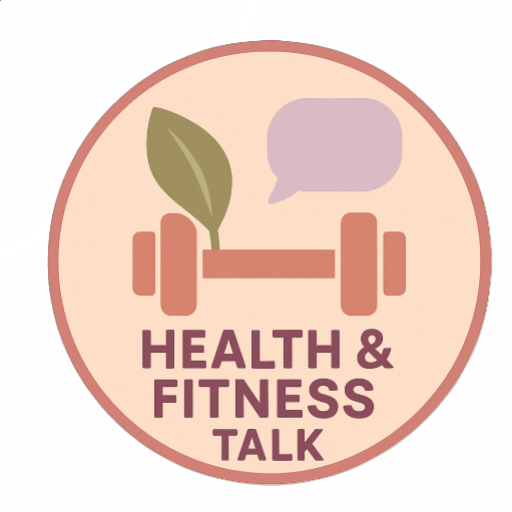By Staff Writer Eddy B.
Is There a Coffee That’s Good for You?
Coffee is one of the most popular beverages in the world—an energizing ritual shared by millions each morning. But beyond the rich aroma and bold flavor, coffee sparks an ongoing debate among health experts. Is coffee good for you, or is it an indulgence best enjoyed in moderation? The truth lies somewhere in between. Research suggests that when consumed responsibly, certain types of coffee can actually offer a wide range of health benefits—from supporting brain function to reducing the risk of chronic diseases.
This 1,200-word article explores which types of coffee are best for you, how brewing methods affect nutritional value, and how to enjoy your cup without the downsides.
The Science Behind Coffee and Health
Coffee contains hundreds of bioactive compounds, many of which have powerful antioxidant and anti-inflammatory properties. Among the most studied are chlorogenic acids, cafestol, kahweol, and caffeine itself. These compounds influence metabolism, protect cells from oxidative damage, and may even enhance longevity.
Caffeine is a natural stimulant that affects the central nervous system, temporarily blocking the neurotransmitter adenosine. This results in improved alertness, energy, and cognitive function. Meanwhile, antioxidants in coffee help neutralize free radicals that can contribute to aging and disease.
Several large-scale studies have found associations between moderate coffee consumption and reduced risks of heart disease, type 2 diabetes, liver disease, Parkinson’s, and certain cancers. The key, however, lies in moderation and preparation.
How Much Coffee Is Healthy?
The general consensus among nutrition experts is that three to four cups of coffee per day—providing about 300–400 mg of caffeine—is considered safe for most healthy adults. This amount has been associated with lower mortality rates and decreased risk of several chronic diseases.
Drinking more than this amount regularly may increase anxiety, interfere with sleep, and, in sensitive individuals, raise blood pressure. Pregnant women, people with heart arrhythmias, and those sensitive to caffeine should limit or avoid excessive intake.
It’s also important to remember that black coffee and sugar-laden coffee drinks are not the same. Once you add syrups, whipped cream, and sweetened milk, you’re no longer drinking a healthy beverage—you’re drinking a dessert.
What Makes Some Coffees Healthier Than Others
Not all coffee is created equal. The type of bean, roast, and brewing method can significantly influence coffee’s health profile.
1. Light vs. Dark Roast
Light roast coffee typically contains more antioxidants than dark roast because it undergoes less heat exposure during roasting. However, dark roast may be gentler on the stomach, as it produces fewer acidic compounds. If you’re looking for the highest antioxidant content, opt for lightly roasted beans.
2. Arabica vs. Robusta Beans
Arabica beans are smoother, less bitter, and typically contain lower caffeine levels than Robusta. Robusta beans, on the other hand, have more caffeine and slightly more antioxidants. If you’re caffeine-sensitive, Arabica may be the better choice; if you want a stronger energy boost, Robusta is ideal.
3. Organic Coffee
Coffee is one of the most pesticide-treated crops in the world. Choosing organic coffee ensures fewer chemicals and cleaner growing practices, which can benefit both your health and the environment.
4. Brewing Methods
How you brew your coffee matters. For instance, unfiltered coffee (like French press or Turkish coffee) contains compounds called cafestol and kahweol that can raise cholesterol levels. Filtered coffee, such as drip-brewed or pour-over, removes most of these compounds, making it a healthier daily option.
5. Freshly Ground Coffee
Grinding beans just before brewing helps preserve antioxidants and flavor compounds that degrade quickly after exposure to air. Pre-ground coffee, though convenient, loses much of its nutritional potency over time.
The Best Types of Coffee for Health
Black Coffee
The purest form of coffee, black coffee contains no sugar, milk, or additives. It delivers maximum antioxidants and zero calories. Regular consumption has been linked to lower risks of type 2 diabetes, stroke, and liver disease.
Cold Brew
Cold brew coffee is steeped for several hours in cold water, resulting in a smoother, less acidic beverage that’s easier on the stomach. It often has higher caffeine concentration but lower acidity, making it a great option for those with sensitive digestion.
Espresso
Espresso, though concentrated, contains slightly less caffeine per serving than a full cup of drip coffee due to its small volume. It’s rich in antioxidants and provides a quick energy boost without excessive fluid intake.
Bulletproof Coffee (Butter Coffee)
This high-fat coffee trend combines brewed coffee with grass-fed butter and MCT oil. Advocates claim it promotes sustained energy and mental focus. While some research supports the energy benefits of medium-chain triglycerides (MCTs), the drink is high in calories and saturated fat—so it’s best as an occasional indulgence, not a daily habit.
Decaffeinated Coffee
Decaf coffee offers many of the same antioxidant benefits as regular coffee, minus the caffeine. Studies show decaf may still support liver function and heart health, making it ideal for people sensitive to caffeine or those who enjoy an evening cup.
Coffee’s Health Benefits Backed by Research
Heart Health
Moderate coffee intake has been linked to a reduced risk of heart disease. The antioxidants in coffee improve blood vessel function and reduce inflammation. Filtered coffee, in particular, has been associated with improved cardiovascular outcomes.
Liver Protection
Coffee is one of the most protective beverages for the liver. Studies have shown that regular drinkers have lower risks of liver cirrhosis, fatty liver disease, and even liver cancer.
Reduced Risk of Type 2 Diabetes
Coffee improves insulin sensitivity and reduces inflammation, both of which lower the risk of type 2 diabetes. Decaf coffee also shows protective effects, suggesting the benefit comes from compounds other than caffeine.
Brain Function and Neuroprotection
Caffeine increases alertness and cognitive performance. Long-term studies also suggest that regular coffee drinkers have a reduced risk of Alzheimer’s and Parkinson’s disease, likely due to its antioxidant and anti-inflammatory properties.
Longevity
Several large population studies have found that coffee drinkers live longer on average. The combination of antioxidants, improved metabolism, and reduced risk of chronic diseases contributes to these findings.
Potential Downsides
Despite its many benefits, coffee isn’t perfect for everyone. Excessive caffeine can cause anxiety, insomnia, rapid heart rate, and digestive issues. Some people metabolize caffeine slowly, making them more prone to side effects. Additionally, unfiltered coffee may raise cholesterol if consumed in large quantities.
Sweetened coffee beverages—like frappuccinos and flavored lattes—can also sabotage health benefits due to high sugar and fat content. For the healthiest experience, drink coffee black or with a splash of milk and no added sugar.
Tips for a Healthier Cup
- Choose organic, freshly ground beans whenever possible.
- Use filtered brewing methods to minimize cholesterol-raising compounds.
- Avoid sugar, syrups, and artificial creamers.
- Limit intake to 3–4 cups per day.
- Stay hydrated—coffee is mildly diuretic.
- Avoid drinking coffee within six hours of bedtime to protect sleep quality.
The Bottom Line
So, is there a coffee that’s good for you? Absolutely. When enjoyed in moderation and brewed thoughtfully, coffee can be one of the healthiest beverages you drink. Black coffee, organic beans, and filtered brewing methods deliver a rich source of antioxidants with minimal downsides.
Whether it’s a morning espresso or an afternoon cold brew, your daily cup can be more than a pick-me-up—it can be a small step toward better health, sharper focus, and even longer life. The key is to keep it pure, simple, and balanced.
References
- Harvard Health Publishing. (2023). Coffee and Health: What the Research Says. https://www.health.harvard.edu/staying-healthy/coffee-and-health-what-the-research-says
- Mayo Clinic. (2024). Coffee and Your Health: The Good and the Bad. https://www.mayoclinic.org/healthy-lifestyle/nutrition-and-healthy-eating/expert-answers/coffee/faq-20058339
- National Institutes of Health. (2023). Coffee Consumption and Health Outcomes. https://www.nih.gov/news-events/nih-research-matters/coffee-consumption-linked-lower-risk-death
- Johns Hopkins Medicine. (2024). 9 Reasons Why (the Right Amount of) Coffee Is Good for You. https://www.hopkinsmedicine.org/health/wellness-and-prevention/9-reasons-why-the-right-amount-of-coffee-is-good-for-you
- American Heart Association. (2024). Is Coffee Good for the Heart? https://www.heart.org/en/news/2024/05/15/is-coffee-good-for-the-heart
- Cleveland Clinic. (2023). Is Coffee Good or Bad for You? https://health.clevelandclinic.org/is-coffee-good-or-bad-for-you





